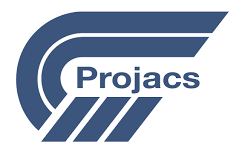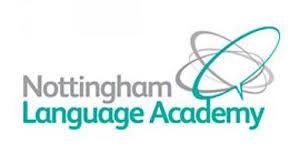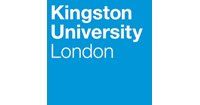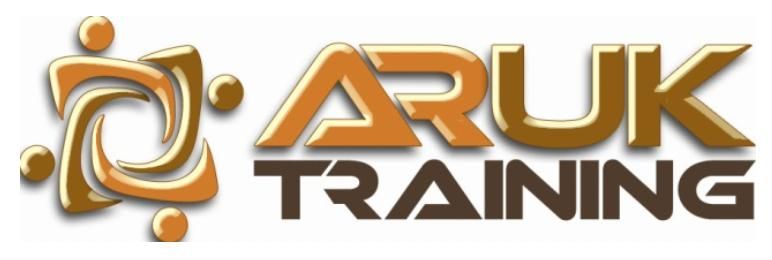
Advanced HVAC Design, Maintenance & Operation Techniques
Course ID: 2504217101016EGI
Course Dates : 21/04/25 Course Duration : 5 Studying Day/s Course Location: Dubai, UAE
Language: Bilingual
Course Category: Professional and CPD Training Programs
Course Subcategories: Operations and Process Excellence
Course Certified By: * Projacs Academy
* Professional Training and CPD Programs
Certification Will Be Issued From :
KSA
Course Fees: £2,940.22
Vat Not Included in the price. VAT may vary depending on the country where the course or workshop is held.
Click to Pay
Date has passed please contact us Sales@e-s-hub.com
Course Information
Introduction
The HVAC (Heating, Ventilation, and Air Conditioning) industry is an integral part of modern infrastructure, offering essential solutions for maintaining comfortable and healthy indoor environments. As buildings and facilities become more complex and energy-conscious, the need for highly skilled professionals in HVAC design, maintenance, and operation has never been more critical. This course provides an advanced level of understanding, empowering participants to design, maintain, and operate HVAC systems with precision and efficiency.
With the growing demand for sustainable energy solutions, the role of HVAC professionals is evolving. Advances in technology, building codes, and environmental regulations have prompted the development of new standards and practices that demand expertise in both conventional and cutting-edge systems. This course delves into the intricacies of these systems, offering a deep dive into the latest techniques and tools used in the design, operation, and maintenance of HVAC systems, ensuring professionals are prepared for the modern challenges faced by the industry.
A key aspect of this training is the integration of energy-efficient solutions into the design and operation of HVAC systems. With global focus on reducing carbon footprints and lowering energy consumption, understanding how to optimize HVAC system performance to meet both environmental and operational goals is crucial. The course also addresses building management systems (BMS), which increasingly play a pivotal role in regulating HVAC systems for greater energy savings and operational control.
By covering both theoretical knowledge and hands-on practice, participants will gain expertise in HVAC system components, their interdependencies, and how to troubleshoot and optimize them. Additionally, the course provides an understanding of the necessary tools and methods for system diagnostics, ensuring that professionals can manage real-world challenges with confidence and competence.
Through detailed case studies and practical examples, the course equips participants with the skills to ensure that HVAC systems meet performance specifications, improve indoor air quality, reduce energy consumption, and comply with the latest regulations. Moreover, participants will learn how to handle the entire lifecycle of an HVAC system, from design and installation to maintenance and optimization, ensuring maximum system longevity and performance.
Upon completion of this course, professionals will be prepared to take on leadership roles within their organizations, managing and optimizing HVAC operations in line with the latest best practices. This knowledge is crucial for ensuring that HVAC systems continue to operate efficiently, minimize downtime, and contribute to a healthier, more sustainable environment.
Objectives
By attending this course, participants will be able to:
Analyze and assess the latest HVAC design techniques and their applications in various building environments.
Apply best practices in the maintenance and operation of HVAC systems to maximize system efficiency, lifespan, and energy savings.
Integrate advanced technologies, such as smart building management systems and energy-efficient HVAC solutions, into their designs and operations.
Troubleshoot and resolve common HVAC system issues using diagnostic tools and techniques.
Understand and comply with current HVAC industry regulations, codes, and standards.
Develop strategies for improving indoor air quality and optimizing environmental control in HVAC systems.
Evaluate system performance metrics to ensure optimal operational efficiency and energy consumption.
Who Should Attend?
This course is ideal for:
HVAC engineers and technicians looking to advance their technical skills and stay current with emerging technologies.
Facility managers responsible for the operation and maintenance of HVAC systems in commercial, residential, and industrial buildings.
Building designers and architects involved in the planning, specification, and integration of HVAC systems into new constructions or retrofits.
Consultants and contractors who want to deepen their knowledge of advanced HVAC systems and improve project management capabilities.
Sustainability professionals working to improve energy efficiency and environmental impact within the built environment.
Anyone interested in mastering HVAC system operation and maintenance to ensure compliance, sustainability, and peak performance.
Training Method
• Pre-assessment
• Live group instruction
• Use of real-world examples, case studies and exercises
• Interactive participation and discussion
• Power point presentation, LCD and flip chart
• Group activities and tests
• Each participant receives a 7” Tablet containing a copy of the presentation, slides and handouts
• Post-assessment
Program Support
This program is supported by:
* Interactive discussions
* Role-play
* Case studies and highlight the techniques available to the participants.
Daily Agenda
The course agenda will be as follows:
• Technical Session 08.30-10.00 am
• Coffee Break 10.00-10.15 am
• Technical Session 10.15-12.15 noon
• Coffee Break 12.15-12.45 pm
• Technical Session 12.45-02.30 pm
• Course Ends 02.30 pm
Course Outlines
Introduction to Advanced HVAC Systems and Principles
Overview of HVAC systems: Components, operation, and key performance indicators.
Understanding HVAC system design principles: Load calculations, system selection, and layout planning.
Energy efficiency in HVAC: Best practices for sustainable design and operation.
Overview of building codes and regulations affecting HVAC design and operation.
Day 2:
HVAC System Design for Modern Applications
Advanced design techniques for residential, commercial, and industrial systems.
Air handling units (AHUs), chillers, and boilers: Design and optimization considerations.
Integrating renewable energy sources and alternative HVAC solutions into system design.
Case studies of complex HVAC designs for large-scale projects.
Day 3:
Maintenance Strategies for Optimal HVAC Performance
Preventive and predictive maintenance practices for HVAC systems.
Troubleshooting techniques: Diagnosing and resolving common HVAC system issues.
Maintaining and testing indoor air quality (IAQ) systems and filtration.
Tools and technologies for HVAC system diagnostics and monitoring.
Day 4:
Energy Management and Efficiency in HVAC Operations
HVAC energy audits: Techniques and tools for identifying energy savings opportunities.
Implementing Building Management Systems (BMS) for real-time system monitoring.
Advanced energy-saving strategies: Variable refrigerant flow (VRF) and demand-controlled ventilation.
Developing energy-efficient operation plans and monitoring system performance.
Day 5:
Advanced HVAC Integration and Emerging Technologies
Integration of smart systems and automation in HVAC operations.
The role of IoT (Internet of Things) in optimizing HVAC system performance.
Exploring emerging HVAC technologies: Geothermal, hybrid systems, and the future of HVAC.
Final review and hands-on practical workshop with case studies and real-world scenarios.



















































